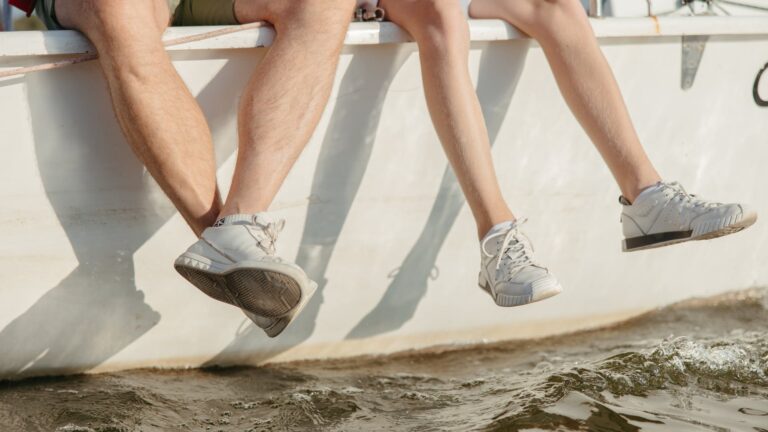How Much Sleep Do Sailors Get?
It’s no secret that life at sea can be hard, and it’s even harder on the crew members who have to work long hours and face the elements while they’re out there doing their job.
One of the most important aspects of a sailor’s health and wellbeing is ensuring that they get enough restful, quality sleep when they are out at sea, but how much rest do they really need?
COMNAVSURFPACINST/COMNAVSURFLANTINST 3120.2A recently released an instruction that states “Sailors must be given the opportunity to obtain a minimum of 7.5 hours of sleep per 24-hour day”, with an uninterrupted 7.5-hours or an uninterrupted 6-hour sleep period and uninterrupted 1.5-hour restorative nap (Jan 28, 2021).
This article will explore how much sleep sailors usually get, why it is important for them to get this amount of sleep, the importance of this instruction, and what other measures can be taken to ensure adequate rest for these hardworking individuals at sea.
What is Sleep?
Sleep is defined as a naturally recurring state in which our bodies and minds enter a period of rest in order to recover from physical or mental activities (NIH, 2021).
It also helps us process information we have learned during the day and improves our physical and emotional wellbeing by helping us feel less stressed and more alert upon waking up (NIH, 2021).
During this time our bodies are able to repair damaged cells and tissues while our brains consolidate newly acquired memories into long-term storage (NIH, 2021).
Sleep also helps regulate hormones that control appetite and mood (NIH, 2021). In short, getting enough quality sleep on a regular basis has many benefits that contribute to overall health and wellbeing for all individuals – including sailors!
What is a Typical Daily Routine on a Sailing Vessel?
Sailors typically work 12 hour days while they are out at sea, with 8 hours in the morning followed by 4 hours in the afternoon (GoFishingBC 2020).
During these 8-12 hour shifts they are responsible for navigation duties such as plotting courses, monitoring instruments, keeping watch over radar screens or performing maintenance tasks (GoFishingBC 2020).
When not on shift their duties include cleaning decks or handling any repairs that may come up during their journey (GoFishingBC 2020).
This rigorous schedule leaves very little time for leisure activities or restful downtime during their voyage – which is why it is so important for them to make sure that they get enough quality sleep when they do have the chance!
Why Is Sleep Important For Sailors?
Getting enough quality sleep has many benefits that help keep sailors healthy both physically and mentally while at sea.
Studies have shown that getting sufficient rest helps improve concentration levels which can help keep them focused even when faced with challenging tasks (Harvard Medical School 2018).
Additionally, research has linked getting enough restful sleep with improved reaction time which may be beneficial in situations where quick decisions need to be made while navigating a ship through choppy waters (Harvard Medical School 2018).
Furthermore, getting quality shut eye has been found to reduce stress levels which can help crews stay calm in emergency situations such as storms or equipment malfunctions (Harvard Medical School 2018).
Lastly, studies have even suggested that getting enough quality rest may reduce risk of serious illnesses such as heart disease or stroke due to its role in regulating hormones involved in metabolism (Harvard Medical School 2018).
All these factors demonstrate why it is so important for sailors to make sure they are getting enough quality shut eye each night!
How Much Sleep Do Sailors Usually Get?
Unfortunately studies show that most seafarers only get around 6 hours of actual sleeping time each night due to various factors such as noise levels from machinery or creaking hulls disrupting their slumber (Baker et al., 2016).
This amount falls short of the recommended 7-9 hours per night needed for individuals aged 18-64 according to The National Sleep Foundation (2021) – leaving them without adequate time needed for deep restorative slumber each night!
It’s no wonder then why fatigue has been identified by maritime professionals as one of the leading causes of errors leading up to accidents involving ships (University College London 2019).
The Importance Of The COMNAVSURFPACINST/COMNAVSURFLANTINST
Given the negative impacts inadequate amounts of quality slumber can have on seafarers – both physically and mentally – steps must be taken to ensure that all crew members are able to obtain sufficient amounts of restful shut eye during their shifts at sea.
One way this can be done is through instituting regulations such as COMNAVSURFPACINST/COMNAVSURFLANTINST 3120.2A which states “Sailors must be given the opportunity to obtain a minimum of 7.5 hours of sleep per 24-hour day” with an uninterrupted 7.5-hours or an uninterrupted 6-hour sleep period plus an uninterrupted 1.5-hour nap per day (Jan 28th 2021).
This rule ensures that crew members have time allocated specifically for sleeping which may help them better manage their workload while still obtaining adequate amounts of slumber each night!
How Does This Instruction Ensure Sleep For Sailors?
The instruction ensures sufficient amounts of shut eye by mandating specific times during each 24 hour day where crew members must take breaks from their duties in order to catch up on some much needed ZZZs – typically 8am till 4pm in the morning followed by 4pm till 12am later on into evening/nighttime periods depending on what shift they are working at any given moment .
Additionally it specifies how long these breaks should last, either 7 ½ hours straight without any interruptions or 6 hours straight followed by 1 ½ hour restorative nap later on into evening/nighttime periods depending on what shift they are working at any given moment .
This rule helps eliminate distractions due to noise levels from machinery or creaking hulls thus allowing crew members time specifically dedicated towards catching up on some ZZZs each day!
What Other Measures Can Be Taken To Ensure Sufficient Sleep For Sailors?
Other measures such as limiting loud noises caused by machinery when crew members are trying to catch some shut eye can go a long way towards helping them gain adequate amounts of quality slumber each night !
Additionally instituting regulations regarding maximum working shifts per week along with allowing crew members access to comfortable sleeping quarters onboard ships may further help improve overall sleeping patterns amongst seafarers .
Finally implementing technology such as wearable trackers may also prove helpful in monitoring how much slumber individual crew members are actually receiving thus allowing captains & ship owners insight into how well rested their crews really are .
How Technology Can Help Sailors Get Better Sleep
Wearable devices like Fitbits & Apple watches now come equipped with built in monitors designed specifically for tracking sleeping patterns .
These devices use sensors placed against your skin along with accelerometers & gyroscopes embedded within them in order detect changes associated with deep & REM cycles throughout your slumber session .
By tracking heart rate , breathing patterns , & other aspects associated with good quality shut eye these devices provide invaluable data regarding how well you have slept throughout your voyage , allowing captains & ship owners insight into how well rested individual crew members really are !
Conclusion
It’s no secret that life at sea can be tough , but ensuring sailors receive adequate amounts of quality shut eye each night plays a vital role in keeping them physically & mentally healthy while out there doing their job !
COMNAVSURFPACINST/COMNAVSURFLANTINST 3120 . 2A recently released an instruction mandating “Sailors must be given the opportunity to obtain a minimum of 7 .
5hours of sleep per 24 – hour day ” , giving them specific times dedicated towards catching up some ZZZs each day !
Additionally instituting regulations regarding noise levels onboard vessels , limiting maximum working shifts per week , providing comfortable sleeping quarters onboard vessels , & implementing technology like wearable trackers may also help ensure seafarers receive adequate amounts of quality slumber each night !
All these measures combined will hopefully go a long way towards ensuring all crews remain safe & healthy during their voyages across oceans far away !
8 essed 19 April /factors contributingto_maritime _accidents/. Accessed 20 April 2021







